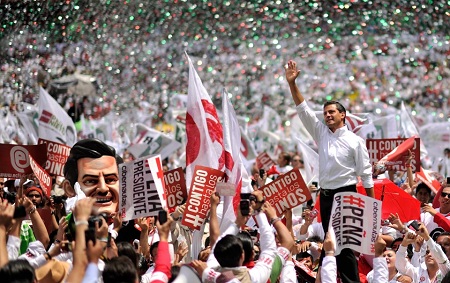It’s not been the best week for the new Greek government.![]()
![]()
Later this week, the key decision-makers of the European Union will be engaged in the latest attempt at ending the eurozone’s crisis at a conference in Rome.
But the new Greek prime minister won’t be there. And neither will his finance minister, a post that may now be vacant.
A week after his center-right, pro-bailout New Democracy won a narrow victory in Greece’s parliamentary elections, Antonis Samaras had emergency surgery over the weekend to repair a detached retina.
Meanwhile, his nominee for finance minister, Vassilis Rapanos, the president of Greece’s national bank, has resigned (or turned down the offer — he was never formally sworn in) after falling ill on Friday and being rushed to the hospital.
Newly sworn-in foreign minister Dimitris Avramopoulos won’t attend.
Neither will Evangelos Venizelos, a former finance minister and leader of the center-left (and also pro-bailout) PASOK nor Fotis Kouvelis, the leader of the more leftist (and moderately anti-bailout) Democratic Left. Both PASOK and the Democratic Left are supporting Samaras’s government, but have refused to take any ministerial roles in the new government — indeed, both Venizelos and Kouvelis seem incredibly terrified that the staunchly anti-bailout and radical leftist SYRIZA will steal even more of their support base. SYRIZA placed a strong second in the June 17 elections and now threatens to displace PASOK as the dominant party of the Greek left.
Greece’s president, Karolos Papoulias, will lead the delegation instead.
Leading Greek newspaper To Pontiki calls out the government for its “sloppy handling” of Greece’s representation in Rome, but it is hard to blame Samaras too much for the unfortunate timing of two medical emergencies. But the incident marks an ominous tone for Greece at a time when the country seems to have days or weeks (not months) to shore up Greece’s position in the eurozone. After a campaign in which even Samaras agreed that the bailout package should be renegotiated in a way to help the Greek economy out of recession, it will be a massive blow to Samaras’s government that he will not be in Rome, nor will his initial choice for finance minister, nor will the leaders of the two parties that are his coalition partners.
In other news likely to be depressing to Athens, the country with the largest exposure to Greece’s banks has now requested a bailout from the European Union as well — Cyprus needs €1.8 billion this week to shore up Cyprus Popular Bank. The amount, tiny by EU bailout standards, represents 10% of Cyprus’s GDP. Although the European Central Bank will want to impose some conditions on the bailout, Cyprus has also been talking to Moscow and Beijing about a cash infusion, making the Cyprus situation not only a financial headache for Athens, but a strategic headache for Berlin and Brussels as well (and it’s not as if the EU doesn’t have one or two problems that make even Greece seem like an afterthought).
